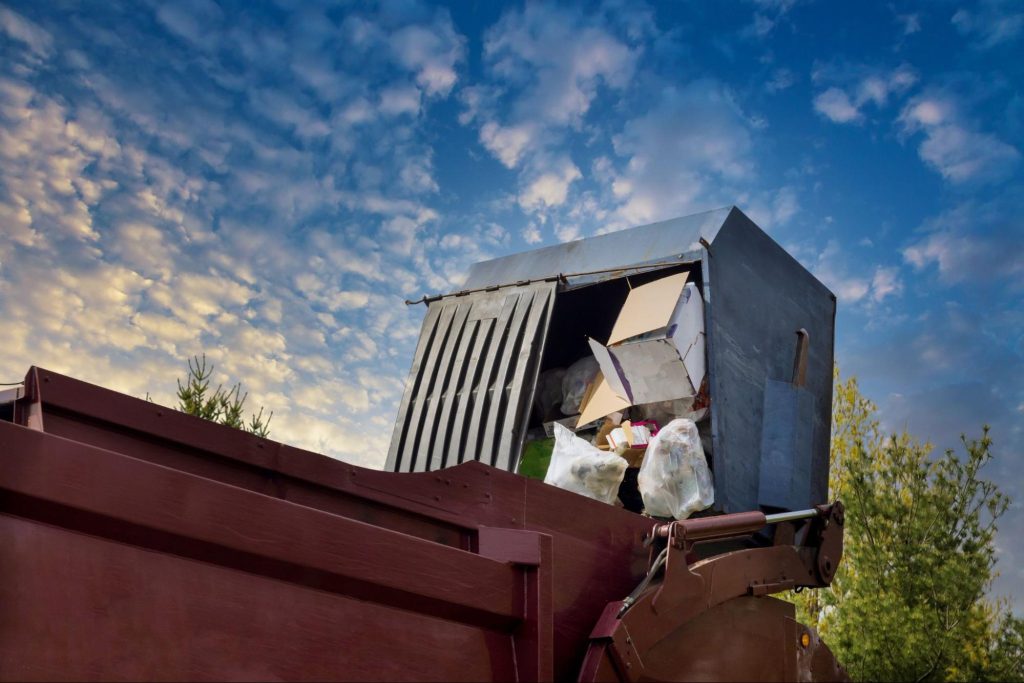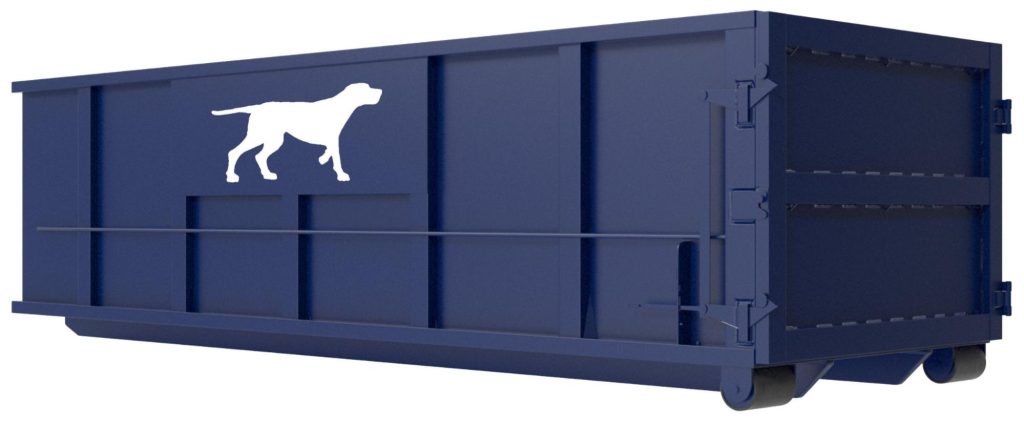Dumpster services provide businesses with a practical way to manage their waste. Each type serves a specific function, ranging from daily trash pickup to large-scale debris removal. Using the right dumpster ensures workspaces remain clean, compliant, and efficient. It also prevents the costly mistakes that come with poor waste handling. As your business scales, the wrong waste setup can quietly drain time, space, and profit.
Why Reliable Dumpster Services Matter for Businesses
Reliable dumpster services are crucial for maintaining clean, safe, and efficient commercial operations. Businesses generate waste in the form of packaging, scrap materials, and customer-facing trash daily. Letting that waste pile up invites health risks, code violations, and workflow disruptions. With proper dumpster service, companies can focus on running their business without worrying about cluttered backlots or missed pickups. Effective waste management reflects well on your brand, demonstrating to customers and employees that your business prioritizes cleanliness and compliance.
Types of Dumpster Services Businesses Can Use
Every business handles waste differently, depending on its size, industry, and workflow. What works for a retail store may not suit a construction site or a medical office. Choosing the proper dumpster service ensures that waste is removed quickly, safely, and complies with local regulations. It’s not just about cleanup but also about protecting your space, staff, and bottom line.
Roll-Off Dumpster Services for Project Waste
Roll-off dumpster services are ideal for projects that generate large amounts of waste. These dumpsters feature open tops and are delivered by trucks that roll them onto the job site. They’re ideal for construction sites, demolitions, and extensive renovations where debris accumulates fast. Their size and accessibility make them essential for temporary high-volume disposal.
Construction and Demolition Dumpster Use
Construction work generates heavy, dense waste that must be removed regularly. Roll-off dumpsters easily handle broken concrete, wood, drywall, metal, and roofing shingles. Standard sizes range from ten to 40 cubic yards, depending on the scope of the job. Contractors often schedule routine pickups to maintain a clean site and keep workflow moving. It helps meet safety standards and local regulations without adding complexity. The right roll-off container ensures that debris doesn’t become a hazard or cause a delay.
Retail Renovation and Inventory Cleanouts
Roll-off services are also helpful for retail locations during remodeling or seasonal overhauls. Businesses disposing of display racks, damaged goods, or outdated inventory benefit from quick removal. These dumpsters are temporarily placed, making them ideal for one-time cleanouts. When space must be cleared quickly without disrupting foot traffic, a roll-off unit can be placed behind the building or in a designated lot. It’s also helpful during end-of-year transitions when stores switch merchandise or reset floor plans. Efficient removal helps reduce labor and clear the path for upgrades.

Industrial Waste Handling With Roll-Offs
Warehouses and manufacturing plants generate a steady stream of non-hazardous waste. Pallets, scrap material, and production packaging can crowd loading areas without a dedicated dumpster. Roll-off dumpsters are a reliable way to handle this volume while keeping shipping docks clear and organized. They’re also commonly used during plant shutdowns, inventory resets, or machinery upgrades. With scheduled pickup service, businesses avoid downtime and streamline cleanup. A cleaner work environment enhances safety and fosters productivity.
Front-Load Dumpster Services for Daily Waste
Front-load dumpster services provide consistent waste removal for businesses with regular output. These containers are smaller than roll-offs and feature lids to contain waste and odors. Pickup trucks lift them from the front and return them quickly, making them ideal for tight schedules. They are most effective for retail shops, restaurants, offices, and clinics with ongoing waste management requirements.
Restaurant Waste Control and Pickup
Restaurants rely on front-load dumpsters to handle daily trash, including food scraps and packaging. Covered lids help contain odors, and regular pickups prevent overflow and pests. Depending on the business volume, these dumpsters are usually serviced multiple times a week. Keeping waste areas clean helps maintain health standards and prevent violations. Front-load units also work with grease and recycling stations placed nearby. The combination creates a reliable system that supports a clean kitchen and dining space.
Office and Retail Waste Disposal
Office buildings and stores utilize front-load services for predictable waste items, such as paper, packaging, and light trash. Depending on the waste load, these containers typically range from 2 to 8 cubic yards. Businesses can schedule pickups on a weekly or biweekly basis to match their needs. Containers are often stored out of sight in alleys or behind buildings to maintain curb appeal. Consistent service helps avoid overflow and employee hassle. It also supports waste separation when combined with paper or cardboard-only bins.
Healthcare Facilities and Clinics
Medical offices typically use front-load dumpsters for non-hazardous waste, including paper, packaging, and general waste. These units are crucial for daily operations, not for biohazards or sharps. Covered containers reduce visual exposure and support patient-facing environments. Healthcare providers often combine them with secure shredding bins and regulated waste containers. This layered approach supports HIPAA compliance and cleanliness. Reliable pickup avoids disruptions in fast-paced environments where waste accumulates quickly.
Rear-Load Dumpster Services for Tight Spaces
Rear-load dumpsters are ideal for areas with limited space. These units have angled tops and rear hooks, making them easier to load manually. Trucks lift them from the back, allowing for tighter positioning near walls, alleys, or loading docks. Businesses in cities or strip malls often prefer rear-load dumpsters for their flexibility.
Urban Businesses and Limited Lot Access
Small restaurants, shops, and cafes in downtown areas often lack large parking lots. Rear-load containers fit into narrow spaces without blocking entrances or exits. Their sloped design makes manual loading easy for staff, and lids help control odors. Pickup trucks can reverse into alleys for collection, which is essential in older districts. The compact size also makes it easier to hide the dumpster from public view. Cleanliness and aesthetics are easier to manage when dumpsters fit the space properly.

Shared Dumpsters for Commercial Centers
Commercial plazas and multi-tenant locations frequently use shared rear-load dumpsters. If pickups are frequent and coordinated, one container may serve several businesses. Property managers typically establish the collection schedule and ensure that each tenant adheres to the rules. It’s an efficient way to save space and keep the area clutter-free. If tenants generate varying amounts of trash, additional units or increased pickups may be needed. With the right plan, rear-load services keep the property organized and business-friendly.
Compactor Dumpster Services for High-Volume Waste
Compactor dumpster services compress waste to reduce volume and control odors. These systems are enclosed, powered by motors, and often placed in high-output businesses. With fewer pickups required, they help reduce hauling costs and space usage. Compactors are commonly used in hospitals, hotels, supermarkets, and distribution centers.
Supermarkets and Food Distribution Centers
Supermarkets deal with constant waste from spoiled produce, damaged packaging, and restocking. A compactor reduces this volume by mechanically pressing the waste. It lowers the number of weekly hauls, saving money and reducing truck traffic. Enclosed systems also prevent pests and odors near delivery bays. Many stores use compactors alongside grease traps and cardboard-only bins for more separation. A cleaner back-end means better overall store operations.
Hotels and Conference Centers
Large hospitality venues generate a mix of food waste, housekeeping trash, and guest disposables. Compactors help centralize this flow into one secure container. The sealed unit keeps waste out of sight, improves sanitation, and simplifies janitorial work. Hotels often place compactors near service elevators or loading docks. Fewer hauls mean less noise and fewer guest disruptions, supporting a seamless guest experience without sacrificing hygiene or efficiency.
Sensitive Waste or Secure Disposal Needs
Hospitals, banks, and data centers sometimes need compactors with security features. These handle shredded documents, packaging with sensitive information, or items requiring restricted access. Compactors with locks and limited entry points reduce the chance of mishandling. They’re also helpful in facilities with HIPAA or OSHA oversight. By compacting and sealing sensitive trash, businesses minimize liability. That’s especially useful in regulated industries or high-risk sectors.
Specialty Dumpster Services for Unique Needs
Specialty dumpster services cater to waste types that don’t fit into traditional categories. These services support seasonal, niche, or high-density waste streams. They’re used in landscaping, roofing, event planning, and specific construction jobs. With tailored capacities and materials, they ensure smooth and compliant operations.
Yard Waste and Landscaping Dumpsters
Businesses in landscaping or grounds maintenance often require yard waste dumpsters. These handle organic debris, such as soil, leaves, branches, and grass clippings. Cities usually don’t allow this material in standard dumpsters due to composting laws. A dedicated yard waste container allows proper separation for recycling or mulching. Seasonal cleanups, such as spring or post-storm work, benefit from temporary rentals. Crews can keep moving without returning to a landfill.
Concrete and Heavy Material Disposal
Concrete, brick, and dirt weigh far more than typical trash. A ten-yard dumpster designed for dense material prevents overloading and fines. These containers have low walls for easy loading with skid steers or wheelbarrows. They’re common on excavation, demolition, and roadwork projects. Regulations often limit the weight a truck can carry, so using the correct dumpster is crucial. Safe hauling reduces legal risk and damage to equipment.
Roof Tear-Off and Construction Material Dumpsters
Roofing jobs generate sharp debris like shingles, nails, underlayment, and flashing. Specialized dumpsters are reinforced for this heavy, jagged material. These dumpsters are usually ordered for the duration of the job and removed quickly. Contractors depend on them to maintain safety and workflow. A blocked site can stall everything from shingle delivery to inspections. Keeping roofing debris contained avoids hazards and job delays.
Temporary Dumpsters for Large Events
Festivals, concerts, and corporate events require waste management that scales quickly. Large dumpsters are delivered before the event and removed after the cleanup is complete. These can collect everything from food wrappers to broken signage. Planning allows organizers to place dumpsters near food courts or exits, ensuring a seamless experience for attendees. Many vendors also request recycling options for cans, plastics, or compostable goods. Clean-up crews work more efficiently when containers are clearly marked and easily accessible.
How to Choose the Right Dumpster Services
Matching dumpster services to your business depends on the volume, type of waste, and available space. Each service offers a unique disposal, compliance, and site cleaning solution. Begin with a waste audit to determine whether your needs are ongoing or project-based. If your needs are temporary or seasonal, a dumpster rental may offer the flexibility and short-term control you want. Consider how often you need pickups and what restrictions apply in your area. The correct container prevents overflow, reduces labor, and keeps your operations streamlined.
Secure Dumpster Services Before Waste Affects Business
Waste problems don’t solve themselves. When disposal gets overlooked, it leads to health issues, compliance violations, and lost efficiency. Dumpster services should support your workflow, not create headaches. Choose a provider that understands your volume, layout, and industry. A clean, managed space shows customers and staff you’re in control. Make waste one less thing to worry about.
Looking to streamline your waste strategy? Visit the Top Dog Waste Solutions blog for the guidance your business needs to stay clean and compliant.








